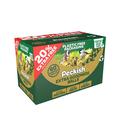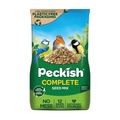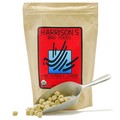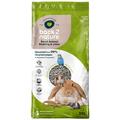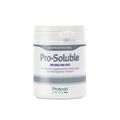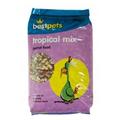UPDATE - 15th May 2021:
The Avian Influenza Prevention Zone and ban on poultry gatherings has been lifted from midday on 15 May. However, high biosecurity standards remain important.
UPDATE - 7th December 2020:
Ontop of the below information, it is now a legal requirement from the 14th December for bird owners to keep their birds indoors only. This legislation has been made in response to multiple further cases of Avian Influenza amongst birds in the UK.
Indoors does not necessarily mean in your house, but birds must not be allowed to contact wild birds outside in any form. They should be kept in their hutch or bird house until the government lifts the restrictions. It is important to keep your bird's happy and healthy even if they have to be indoors, contact us on [email protected] for specific advice if you need it.
______________________
An Avian Influenza National Prevention Zone has been declared by the UK government for implementation across the whole of England, Scotland and Wales from 17:00 on the 11th November 2020. This is due to multiple recent separate cases of the H5N2 and H5N8 strains being found in birds in Devon, Kent, Cheshire and Herefordshire. This Zone brings in new legislation for all bird keepers across the country to follow. Whether you own a parrot or a few pet chickens, you need to know how this applies to you. Don’t worry though because we have compacted a summarised guide of what this means for you and your pets, just read on!
What is Avian Influenza?
In simpler terms this is ‘Bird Flu’. It is a virus that is almost exclusive to birds, the risk to humans is currently classed as very low. Birds of any kind including wild birds can become infected or transmit the disease. The current infections have likely been transferred from wild birds migrating across or back into the UK.
There are 2 strains; the Highly pathogenic strain (HPAI) can be fatal whilst the Low pathogenic strain (LPAI) causes milder signs. LPAI can show as mild breathing problems or even no signs at all, whilst HPAI can cause inappetance, blue discoloration, diarrhoea, reduced egg laying, severe breathing signs, swelling to the head and even death. If you see any of the above signs in your birds it's really important to contact your local vet.
Is there a risk to people?
The risk to humans is classed as very low. Very rarely some strains of Avian Influenza can transfer to people but this usually requires very close contact between humans and infected birds. The Food Standards Agency has stated that poultry products, including eggs, are still safe to eat.
What if I find a dead wild bird?
If you come across any dead wild waterfowl (swans, geese or ducks) or other dead wild birds, such as gulls or birds of prey, then you should report them to the Defra helpline (03459 33 55 77). DEFRA will then collect some of these birds and test them to help them understand how the disease is distributed geographically and in different types of bird.
What does the Prevention Zone mean for me?
If you are a bird keeper then there are additional measures you need to take. Keepers with more than 500 birds will need to restrict access for non-essential people on their sites, workers will need to change clothing and footwear before entering bird enclosures and site vehicles will need to be cleaned and disinfected regularly.
Backyard owners with smaller numbers of poultry including chickens, ducks and geese are also urged to strengthen their biosecurity measures in order to prevent further outbreaks of avian influenza in the UK. This includes following measures set out by the government.
When we worry and think of what is high level disinfection, we realise that it is essential to avoid further spread and is necessary to keep everyone safe.
What do I legally have to do as a bird keeper?
If you are a backyard poultry owner, or keep birds as pets, then there are a few steps you legally need to take:
-
Take precautions to avoid transfer of virus contamination between the premises where your birds are kept.
-
Transfer is most likely on clothing/shoes and hands. Ensure you wash your hands thoroughly before and after handling your birds, as well as giving your gear a quick clean down with a disinfectant. Routine cleaning of your bird’s housing should be continued.
-
If you own more than 50 birds then you will need to have a foot dip, a small tray of disinfectant that you step into and out of when you exit/enter your bird pen. This can be a station where you change footwear instead, only using a specific pair when with your birds.
-
You will need handwashes/disinfectants effective against viruses for all of the above. Alcohol based hand gels will kill viruses and are appropriate, however few have been specifically tested for Avian Influenza. Anigene HLD4VND Dill 5 or 20 litre bottles are good choices for environmental disinfection as they are DEFRA approved to combat avian influenza at a 1:10 dilution rates. Animal health Defence 7 is also DEFRA approved to kill the virus at 1:100 dilution rates.
-
-
Feed, water and bedding must be stored to minimise the risk of contamination. This means keeping them locked safely away from wild birds or other wildlife.
-
Have an effective vermin control in place. This means if you have an infestation of rats or other wildlife then you should be taking steps to control it.
-
The movement of people/vehicles/equipment to your birds should only be ‘essential’ movements. Records should be kept of any vehicle movements.
-
This should not affect the average small birds keeper. Just try to reduce any unnecessary procedures, now may not be the time to repaint the chicken shed!
-
-
Records of birds and egg movements must be kept. This is mainly for those going to market which should not apply to the average pet bird keeper.
-
If you do need to move birds/eggs then you must record the following; quantity/description of produce transported, date of movement off premises, destination if known and the name/address of the new owner.
-
-
Buildings housing birds must be maintained to reduce external contamination.
-
For example if there is a water leak or hole in the bird house where wildlife could enter then this needs to be fixed as a priority.
-
-
Outdoor range areas must be fenced and actively managed.
-
The area must not be contaminated with feather/faeces from wild birds, and if present they must be removed.
-
Access to open/standing water such as ponds must be prevented. Water should only be provided under a covered area and should be clean/fresh.
-
Ducks and geese should not be kept in the same pen or building as other poultry species, e.g. chickens/turkeys.
-
Take proactive measures to discourage wild birds interacting with your birds, for example enclose the area with a wire mesh.
-
Regular disinfecting of concrete walkways/paths must be carried out.
-
If you own a large commercial flock (>500 birds) then there are multiple additional steps you need to take that we don’t have the space to summarise in this blog. We recommend you read the document in the link here published by DEFRA which summarises the steps nicely.
Need additional information?
If you are concerned about how to meet the above requirements then please get in touch with our customer services on 01582 842096 or [email protected]. One of our Vets or SQPs can give you tailored advice to help keep your birds safe during this time.
https://www.gov.uk/government/news/avian-influenza-bird-flu-national-prevention-zone-declared
Written by: Dr. Nick Garside BVetMed MRCVS

